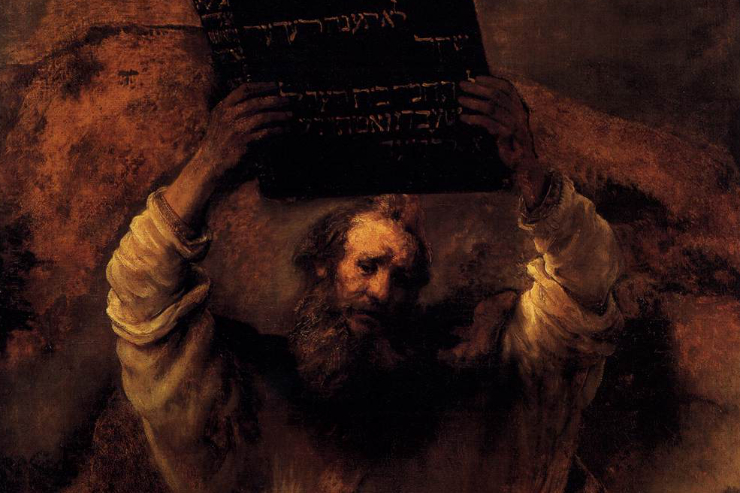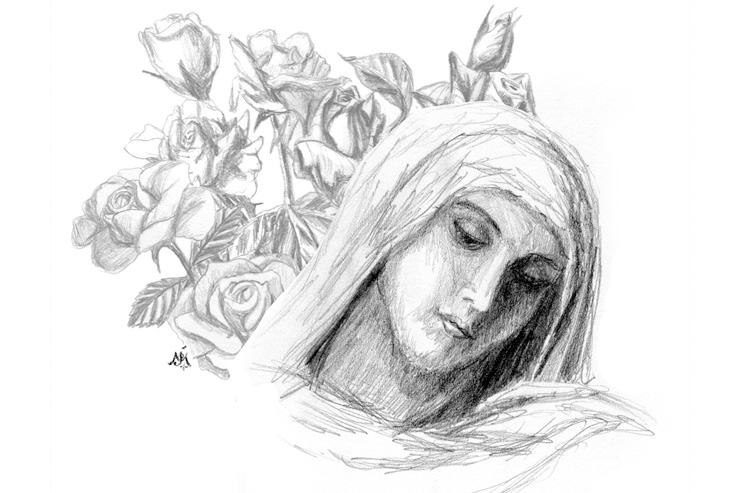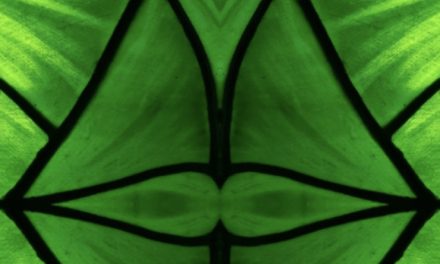
“Moses Breaking the Tablets” (detail) by Rembrandt [Public domain], via Wikimedia Commons
There is a remarkable story of transformation that occurs in the Old Testament, and it happens to a character we all know very well.
“One day, when Moses had grown up, he went out to his people and looked on their burdens; and he saw an Egyptian beating a Hebrew, one of his people. He looked this way and that, and seeing no one he killed the Egyptian and hid him in the sand.” (Exodus 2:11-12)
Many of us may not be familiar with this aspect of Moses’ early character, but apparently he had a bit of a temper.
Later in Moses’ life however, in the Book of Numbers, we read about a remarkable transformation that occurred. This is the story about how Miriam and Aaron chose to criticize Moses over his decision to marry a Cushite wife. They were very dismissive of Moses and suggested that God did not rely only on Moses to guide the Israelite people.
“’Has the Lord indeed spoken only through Moses? Has he not spoken through us also?’ And the Lord heard it.” (Numbers 12:2)
In the midst of this difficult criticism, we not only do not see Moses getting angry, but Scripture actually says he was a man of profound meekness.
“Now the man Moses was very meek, more than all men that were on the face of the earth.” (Numbers 12:3)
So what happened here? How was Moses, who at one point in his early life was willing to kill a man, later found to have been transformed into the meekest man on earth?
Well it goes without saying that between these two periods in his life Moses spent a good deal of time before God. Indeed, even God Himself said that if He were to communicate to the people through a prophet, He (God) would speak to that individual in dreams. But speaking to Miriam and Aaron about Moses, God actually came to Moses’ defense when He said:
“And he said, ‘Hear my words: If there is a prophet among you, I the Lord make myself known to him in a vision, I speak with him in a dream. Not so with my servant Moses; he is entrusted with all my house. With him I speak mouth to mouth, clearly, and not in dark speech; and he beholds the form of the Lord. Why then were you not afraid to speak against my servant Moses?’” (Numbers 12:6-8)
God must have shared a great deal with Moses during those extended conversations, and they appear to have genuinely transformed the character and personality of Moses in a profound way. The physical evidence of this is found in the radiant exterior appearance of Moses whenever he came from the Lord’s presence.
“When Moses came down from Mount Sinai, with the two tables of the testimony in his hand as he came down from the mountain, Moses did not know that the skin of his face shone because he had been talking with God.” (Exodus 34:29)
This radiance on Moses’ face occurred every time he presented himself before God.
“The people of Israel saw the face of Moses, that the skin of Moses’ face shone; and Moses would put the veil upon his face again, until he went in to speak with him.” (Exodus 34:35)
But this exterior radiance was merely an indication of the transformation that had occurred in Moses’ interior disposition, the disposition of his heart before God. This is true for all of us. Time spent in prayer before God literally changes us.
“And we all, with unveiled face, beholding the glory of the Lord, are being changed into his likeness from one degree of glory to another; for this comes from the Lord who is the Spirit.” (2 Corinthians 3:18)
Building on this theme of Moses’ transformation to meekness and our desire to get the most out of prayer, we might consider one of the nine different prayer positions of St. Dominic. St. Dominic was a Spaniard who died in the early 1200s, and he was the Founder of the Dominicans, also known as the Order of Preachers. St. Dominic was considered a master of prayer who developed nine different positions that he would assume in his prayer practices, each with a specific purpose.
In one of the nine positions of prayer, St. Dominic would simply lie stretched out on the floor in a physical expression of total humility, helplessness and vulnerability before God. In this position, he would intercede and plead God’s mercy for the Church, the world and especially for himself. He would acknowledge that only God could bring about the plans that were ultimately in the best interest of all those for whom he would pray, as well as for Dominic himself. This prayer position was an exterior expression of Dominic’s desire for personal and interior transformation.
Now I realize that we may not all be able to find a place to pray where we can lay prostrate on the ground, but it is not so much the exterior posture or position we assume in prayer as it is the disposition of our heart. So often our hearts are pulled in multiple directions when we pray. We may think and even say and believe that what we want is for God to do His work in us and have His way with our lives. But the truth is we are always torn between our desire for what we know is best, i.e. God’s Will, and our counter desire to have our worldly circumstances work out the way we want.
Have you ever tried to imagine when you pray that you are actually laying down on the ground prostrate before God, completely disposed to accept whatever it is that He wants to do in your life? We can use our bodies and prayer postures to reflect the depths of our heart as St. Dominic did. This can be a very powerful method of prayer. But the main thing is to make sure our hearts have the proper disposition to both desire and accept what it is that God wants to give us, whether it be a blessing or a trial.
If we can properly dispose ourselves for prayer in this way, then all the circumstances of our lives, the easy and the difficult, will serve to transform us into the persons God has destined us to be. If we can properly dispose our hearts for prayer, then God will undoubtedly allow us to reflect the radiance of His glory in our very lives. And people will begin to see the radiance of God in our appearance. In addition, we will be following the example of the one God sent to serve as our very model for prayer and transformation.
“And after six days Jesus took with him Peter and James and John his brother, and led them up a high mountain apart. And he was transfigured before them, and his face shone like the sun, and his garments became white as light.” (Matthew 17:1-2)
Please take some time this week to pray that we might all dispose our hearts to accept whatever it is that the Lord is doing in our lives at this time. And having prostrated ourselves before our merciful God, we might all be increasingly transformed by our encounter with Him.
God Bless
Copyright © 2019, Mark Danis
Both one-time and monthly donations are welcome. Just $10 a month will help cover the cost of operating Integrated Catholic Life for one day! Please help us bring enriching and inspiring Catholic content to readers around the world by giving today. Thank you!














